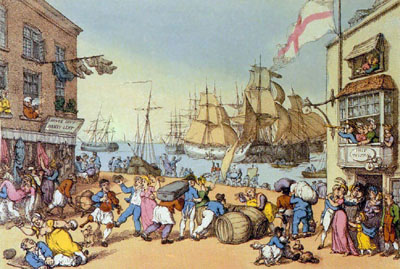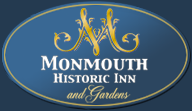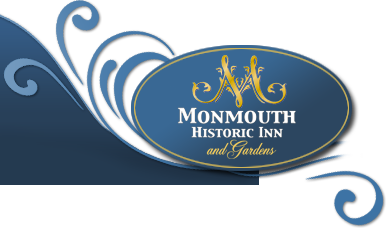Natchez – a Town With Two Faces – Part II
This second part of Mr. Nelson’s insightful October of 2010 article really begins to compare and contrast the city, and why Quitman felt it was “a town with two faces.” You need to read the article to fully understand where Quitman’s coming from when he states this – and it may not be exactly what you’d expect – but then again, it might. There are actually quite a number of extremely colorful stories floating around about Natchez Under the Hill from that era. Enjoy this good read and until next time, happy travels, which we always hope will bring you to us.
A new lawyer settles in Natchez, a town with two faces

By Stanley Nelson
Concordia Sentinel
October 13, 2010
(Cont’d)
Gambling and hard drinking, he said, "are carried to excess." He said under-the-hill was "a straggling town at the base of the bluff, consisting of warehouses, low taverns, groggeries, dens of prostitution and gambling" where "vice and infamy are rampant and glaring, and the law almost powerless." There, he said, scoundrels and the wicked operated without "shame and restraint," and the Sabbath "is there particularly a day of profanation and debauchery. The gambler, the bully, and the harlot reign triumphant and little jurisdiction is taken over their atrocities."
But the city proper and the surrounding countryside, wrote Quitman, was like a paradise where lived a "genteel and well-regulated society." He said there were more Presbyterians and Methodists than Episcopalians and Catholics.
"The planters are the prominent feature," he wrote. "They ride fine horses, are followed by well-dressed and very aristocratic servants, but affect great simplicity of costume themselves — straw hats and no neck-cloths in summer, and in winter coarse shoes and blanket overcoats. They live profusely: drink costly Port, Madeira, and sherry,…and are exceeding hospitable. Cotton-planting is the most lucrative business that can be followed. Some of the planters net $50,000 from a single crop."
A man who met the public well, Quitman quickly was flitting about the Natchez social scene. Not long after arriving, he spent a cool January day at the Forest plantation home south of Natchez, owned by Dr. William Dunbar, the son of William Dunbar, the explorer, planter, astronomer and writer who moved to Natchez from Manchac in 1792. Dunbar died in 1810, and a short time later, his widow built a mansion on the home place near Second Creek. The columns still stand near the Dunbar cemetery on Hwy. 61 South.
There, a month after he first stepped onto Natchez soil, Quitman dined with Dr. (William) Dunbar and guests at the Forest plantation home. He was now on the circuit. Quitman described the day to his father in a letter: "The mansion, the stately oaks, the extensive park, and the vast, undulating sweep of cultivated fields, are really magnificent. On the table we had green peas, lettuce, radishes, artichokes, new potatoes, and spinach, grown in the open air, and roses, jessamines, jonquils, and pinks in profusion.
"What a delightful clime! I almost think of it as the retreat for your age. The peach and plum are in full bloom, and the birds sing merrily in the honeysuckles and around my bed chamber."
In town, Quitman said the streets were lined "with carriages, drays and wagons. The rush to the river is incessant. Every hour we hear the roar of canon, announcing the arrival and departure of steamers. Hundreds of arks, or flat-boats, loaded with the produce of the Western States, even from the interior of Pennsylvania, here line the landing for half a mile, often lying five tier deep!"
In early January 1824 Quitman passed his exam before the Supreme Court and was a licensed attorney in the state of Mississippi. He was on his way.









